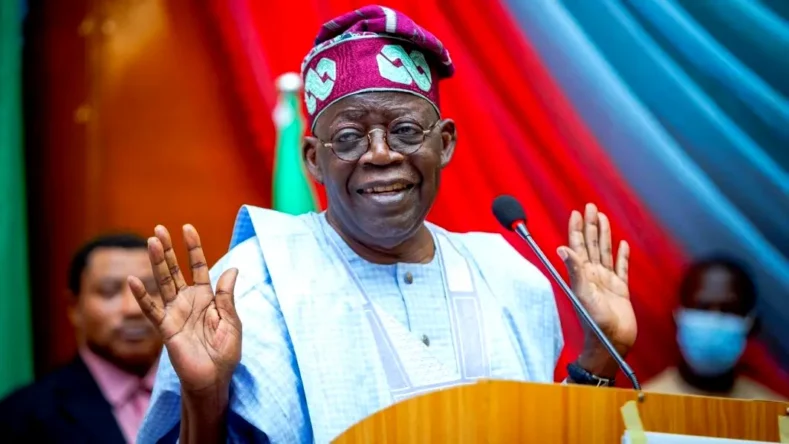Education
Do not dare Nigerians – NLC, TUC tell Tinubu

The Nigerian Labour Congress (NLC) and the Trade Union Congress of Nigeria (TUC) have told President Bola Tinubu not to dare Nigerians with the removal of subsidies.
In a separate statement, the two labour unions advised President Tinubu not to dare the Nigerian people, saying any attempt to further inflict hardship on Nigerians would be met with resistance.
In a statement signed by its president, Comrade Joe Ajero, the NLC stated that it is “outraged” by the removal of the fuel subsidy.
The statement reads, “We at the Nigeria Labour Congress are outraged by the pronouncement of President Bola Tinubu removing the “fuel subsidy’ without due consultations with critical stakeholder groups or without putting in place palliative measures to cushion the harsh effects of the ‘subsidy removal.
“Within hours of his pronouncement, the nation went into a tailspin due to a combination of service shutdowns and product price hikes, in some places representing over a 300 percent price adjustment.
The NLC called the move by President Tinubu “insensitive”, stating it has brought “tears and sorrow to millions of Nigerians”.
“By his insensitive decision, President Tinubu on his inauguration day brought tears and sorrow to millions of Nigerians instead of hope. He equally devalued the quality of their lives by over 300 percent and counting.
“It is no heroism to commit against the people this level of cruelty at any time, let alone on an inauguration day. If he is expecting a medal for taking this decision, he would certainly be disappointed to receive curses, for the people of Nigeria consider this decision not only a slight but a big betrayal.
“On our part, we are staunchly opposed to this decision and are demanding an immediate withdrawal of this policy.
“The implications of this decision are grave for our security and well-being.
“We wonder if President Tinubu gave thought to why his predecessors in office refused to implement this highly injurious policy decision?
“Nigerians do not need to be wedded to the subsidy. It is not the subsidy that gives life to the social compact; the amount of the expenditure is the better litmus test.
”When attempting to douse popular sentiment, the government pretended that the social contract would remain intact because the government would spend the money saved from the subsidy on other programmes.” This would be nice if supported by action. If the government were sincere in this regard, it would have used an entirely different strategy.”
“In light of the foregoing, we advise Tinubu to respect his own postulations and economic theories instead of daring the people. “It could be a costly gamble.”
Reacting to the removal of fuel subsidies by President Tinubu, the TUC, in a statement jointly signed by its President and General Secretary, Comrades Festus Osifo and Nuhu Toro, stated that due consultation with stakeholders should have been applied before the removal.
“We dare say that this is a very delicate issue that touches on the lives, if not the very survival, of particularly the working people; hence, it ought to have been treated with utmost caution and should have been preceded by robust dialogue and consultation with the representatives of the working people, including professionals, market people, students, and the poor masses.
“We hereby demand that President Tinubu tarry awhile to give room for robust dialogue, consultation, and stakeholder engagement, just as he opined in his speech, until all issues and questions—and there are a host of them!—are amicably considered and resolved. Nigerian workers and indeed mases must not suffer the inefficiency of successive governments.
“We are also worried that in his speech, President Tinubu failed to delve into or reveal his plans on how to tackle and address the issue of poor and unchecked deterioration in industrial relations, particularly in the education, health, and judiciary sectors, often resulting in prolonged strikes and industrial actions and their attendant adverse effects on society and the economy,” the statement reads.











